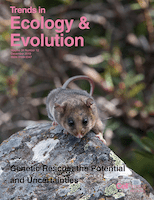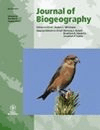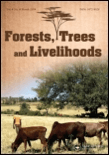
Ecological Questions
Scope & Guideline
Empowering Researchers with Cutting-edge Ecological Insights.
Introduction
Aims and Scopes
- Ecological Analysis and Biodiversity Assessment:
The journal emphasizes studies that analyze ecological systems, assess biodiversity, and evaluate the impacts of various factors on ecosystems, including human actions. - Sustainable Resource Management:
Research focusing on the sustainable management of natural resources, including agriculture, aquaculture, and forestry, is a core area of interest, addressing the balance between human needs and ecological integrity. - Impact of Climate Change:
Papers often explore the effects of climate change on ecosystems, species distribution, and ecological processes, highlighting the urgent need for adaptive strategies. - Technological Innovations in Ecology:
The journal showcases research on the application of advanced technologies such as GIS, remote sensing, and artificial intelligence in ecological studies and environmental monitoring. - Ethnoecology and Community Engagement:
There is a consistent focus on the role of traditional ecological knowledge and community participation in conservation efforts and resource management.
Trending and Emerging
- Bibliometric and Network Analysis:
Increasingly, papers utilize bibliometric analyses to assess research trends and patterns, indicating a growing interest in understanding the scientific discourse surrounding ecological questions. - Artificial Intelligence in Ecology:
There is a notable rise in the use of artificial intelligence and machine learning techniques to monitor and analyze ecological data, reflecting an emergent trend towards integrating technology in ecological research. - Urban Ecology and Sustainability:
Research focusing on urban environments, their ecological challenges, and sustainable practices is gaining prominence, acknowledging the critical intersection of urbanization and ecological health. - Impacts of Covid-19 on Ecological Systems:
Studies examining the ecological ramifications of the Covid-19 pandemic, such as changes in human activity and its effects on various ecosystems, are emerging as a significant theme. - Climate Change Adaptation Strategies:
Research that proposes and evaluates adaptive strategies in response to climate change impacts is increasingly relevant, highlighting the urgency of addressing this global challenge.
Declining or Waning
- Traditional Ecological Practices:
Papers focusing solely on traditional ecological practices without integrating modern scientific approaches have become less frequent, indicating a shift towards more evidence-based and technology-driven research. - Generalized Studies on Pollution:
Research that addresses pollution in a broad sense, without specific case studies or innovative methodologies, has seen a decline, possibly due to the increasing complexity of pollution issues requiring targeted studies. - Historical Ecology:
The emphasis on historical ecology and retrospective studies appears to be waning, as the journal trends towards more contemporary and applied ecological research.
Similar Journals

ACTA OECOLOGICA-INTERNATIONAL JOURNAL OF ECOLOGY
Connecting Scholars to Transform Ecological PracticesACTA OECOLOGICA-INTERNATIONAL JOURNAL OF ECOLOGY, published by Elsevier, stands as a prominent platform for disseminating innovative research in the diverse field of ecology. Operating since 1983 and continuing to make significant contributions into 2024, this journal features critical studies that advance our understanding of ecological systems, behaviors, and conservation efforts. With an impressive Q2 ranking in both the ecology and nature conservation categories, it exemplifies high-quality scholarship, reflected in its Scopus rankings—#74 in Environmental Science and #254 in Agricultural and Biological Sciences. Researchers, professionals, and students in the field are invited to explore the latest findings and methodologies that address pivotal ecological issues. As a journal committed to fostering academic collaboration, ACTA OECOLOGICA is essential for anyone dedicated to enhancing their comprehension of ecological dynamics and advancing sustainability practices globally.

Neotropical Biodiversity
Connecting global minds through Neotropical ecological research.Neotropical Biodiversity is a prominent journal dedicated to advancing our understanding of biodiversity and ecological dynamics within the Neotropical region. Published by TAYLOR & FRANCIS LTD in the United Kingdom, this Open Access journal has been providing unrestricted access to research findings since 2015, fostering collaboration and knowledge sharing among the global scientific community. With an emphasis on innovative research in Ecology, Ecology, Evolution, Behavior and Systematics, and Global and Planetary Change, it has earned a reputation for excellence, currently holding a Q3 category in its field. As of 2023, the journal ranks in the 37th percentile for Environmental Science (Ecology) and in the 36th percentile for Agricultural and Biological Sciences (Ecology, Evolution, Behavior and Systematics), making it a valuable resource for researchers, professionals, and students interested in understanding and preserving biodiversity in one of the world's most diverse ecosystems. We invite you to explore the cutting-edge research published in Neotropical Biodiversity and contribute to the ongoing dialogue for environmental sustainability and ecological resilience.

TRENDS IN ECOLOGY & EVOLUTION
Advancing Knowledge in Ecology and Evolutionary BehaviorTRENDS IN ECOLOGY & EVOLUTION, published by CELL PRESS, is a premier academic journal dedicated to the dynamic fields of ecology, evolution, and behavior. With its ISSN 0169-5347 and E-ISSN 1872-8383, this prestigious journal has consistently contributed to the scientific community since its inception in 1986 and is set to continue its legacy through 2024. Ranked in the top quartile (Q1) of its category in 2023, TRENDS IN ECOLOGY & EVOLUTION holds an extraordinary position, sitting at rank #4 out of 721 in the Scopus database for Agricultural and Biological Sciences, specifically within the Ecology and Evolution sectors, reflecting its high impact and relevance in these critical areas of study. The journal's objective is to provide a platform for reviewing and synthesizing the latest research, trends, and advances, thereby influencing the direction of future scientific inquiries. Although it does not currently offer open access options, its insights are invaluable for researchers, professionals, and students eager to delve into the rapidly evolving understanding of ecological and evolutionary processes.

NORTHWEST SCIENCE
Empowering researchers with vital insights from the Northwest.NORTHWEST SCIENCE, published by the NORTHWEST SCIENTIFIC ASSOCIATION, serves as a vital resource for researchers and professionals in the fields of ecology, evolution, and systematics. With an ISSN of 0029-344X and an E-ISSN of 2161-9859, this journal has been disseminating valuable scientific insights since its inception in 1975 and continues to do so into 2024. Although currently positioned in the Q4 quartile for its category, it plays a crucial role in advancing the understanding of ecological and biological sciences, reflecting a diverse range of studies and methodologies. Researchers will find the journal particularly appealing due to its emphasis on regional studies and their implications on a global scale. While NORTHWEST SCIENCE is not an open-access publication, it provides significant contributions to the academic dialogue within its discipline, making it an essential addition to the library of any dedicated researcher, student, or professional in the environmental sciences.

Madera y Bosques
Exploring the Depths of Wood ScienceMadera y Bosques is a prominent academic journal specializing in the fields of forestry and wood science, published by INST ECOLOGIA A C in Mexico. With an ISSN of 1405-0471 and an E-ISSN of 2448-7597, it has established itself as a vital platform for disseminating research findings, innovative practices, and methodologies pertinent to sustainable forest management and ecological conservation. Operating since 2008, the journal covers a wide scope of topics related to the complexities of forest ecosystems, the importance of biodiversity, and the challenges posed by climate change. Despite its categorization in Q4 for the year 2023 in the Forestry category, Madera y Bosques aims to elevate discourse and practice in the field, providing a voice to emerging researchers and seasoned professionals alike. Additionally, the journal adheres to open access principles, enhancing the visibility and accessibility of its articles to a global audience. Researchers and practitioners are encouraged to engage with its rich content to further their understanding and impact in the world of forestry.

Physio-Geo
Bridging Gaps in Environmental ResearchPhysio-Geo (ISSN: 1958-573X) is a distinguished open-access journal published by REVUES ORG, dedicated to advancing the fields of Earth and Planetary Sciences, with a special focus on Earth-Surface Processes, Environmental Science, and Ecology. Since its inception in 2007, Physio-Geo has provided a platform for researchers, professionals, and students to disseminate and access high-quality studies that contribute to the understanding of our environment. With a convergence period from 2019 to 2024, the journal aims to bridge disciplinary gaps and foster interdisciplinary research that addresses pressing ecological and environmental challenges. Despite its current Scopus rankings reflecting an early-stage development, the journal is poised to enhance its impact within the scientific community, particularly as it embraces a wider audience through its open-access model. By offering valuable insights and comprehensive analyses, Physio-Geo is an essential resource for those seeking to explore the complex interactions between physical geography and ecological systems.

JOURNAL OF BIOGEOGRAPHY
Advancing Knowledge in Ecological Patterns and ProcessesJOURNAL OF BIOGEOGRAPHY, published by Wiley, stands as a premier multidisciplinary platform for the publication of high-quality research in the fields of biogeography and ecology. With an impressive Q1 ranking in both Ecology and Ecology, Evolution, Behavior and Systematics categories for 2023, this journal is recognized for its significant contribution to understanding ecological patterns and processes across geographic spaces. The journal, which has been in circulation since 1948 with a continuous production from 1979 to 2024, features rigorously peer-reviewed articles, critical reviews, and essential data that illuminate the dynamic interactions between organisms and their environments. While this journal does not currently offer open access options, it remains a valuable resource for researchers, professionals, and students seeking to explore the latest discoveries and theoretical advances in biogeography. With impressive Scopus rankings, including a 73rd position out of 721 in Agricultural and Biological Sciences and a 53rd position out of 461 in Environmental Science, the JOURNAL OF BIOGEOGRAPHY is indispensable for those aiming to advance their understanding of ecological frameworks and biodiversity conservation.

Forests Trees and Livelihoods
Empowering Communities through Forest ScienceForests, Trees and Livelihoods is a distinguished journal published by Taylor & Francis Ltd, focusing on the intricate relationships between forestry, environmental sustainability, and rural livelihoods. With an ISSN of 1472-8028 and an E-ISSN of 2164-3075, this journal has been a pivotal platform since its inception in 1999, converging on contemporary issues through 2024. Ranked in the Q2 quartile of the forestry category, it stands at rank #77 out of 174 in Scopus, evidencing its significance in agricultural and biological sciences. The journal aims to disseminate novel research findings, policy analyses, and case studies that inform sustainable forestry practices and contribute to improving the livelihoods of communities reliant on forest resources. Through its commitment to quality and accessibility, Forests, Trees and Livelihoods is an essential resource for researchers, professionals, and students striving to enhance understanding and practices in the field of forestry.

Molecular Ecology Resources
Connecting Molecules to Ecosystems: Your Resource HubMolecular Ecology Resources, published by WILEY, is a leading international journal that specializes in the intersection of molecular biology with ecology and evolution. With an impressive impact factor signified by its Q1 status in multiple categories, including Biotechnology, Ecology, Evolution, Behavior and Systematics, and Genetics for 2023, this journal stands as a reputable source of groundbreaking research within the fields of agricultural and biological sciences. Its Scopus rankings are particularly noteworthy, placing it in the top tier of its respective categories, demonstrating its significance in advancing our understanding of molecular ecology. The journal has been committed to fostering high-quality scientific discourse from 2008 to 2024 and offers open access options to enhance its visibility and accessibility. As a researcher, professional, or student in these dynamic fields, engaging with Molecular Ecology Resources means contributing to and staying informed about the latest innovations and methodologies that shape our understanding of the biological world.

Landscape and Ecological Engineering
Exploring the synergy between nature and design.Landscape and Ecological Engineering, published by SPRINGER JAPAN KK, is a vital journal that serves as a platform for the dissemination of innovative research and methodologies in the fields of landscape ecology and environmental engineering. With an ISSN of 1860-1871 and E-ISSN 1860-188X, this journal showcases articles that address the dynamic interplay between ecological processes and engineering designs in both natural and urban environments. As a significant publication since its inception in 2006, it is recognized in the Q2 quartile for Ecology and Nature and Landscape Conservation, alongside its placement in the Q3 quartile for Management, Monitoring, Policy, and Law, ensuring its relevance across multiple dimensions of environmental studies. The journal's presence in prominent databases, reflected in its Scopus rankings, highlights its commitment to high-quality, impactful research that guides conservation strategies and landscape management practices. Engaging with Landscape and Ecological Engineering provides researchers, professionals, and students with critical insights and developments, promoting sustainable solutions for ecological challenges. This journal is an essential resource for anyone seeking to enhance their understanding of ecological engineering approaches and landscape conservation efforts.